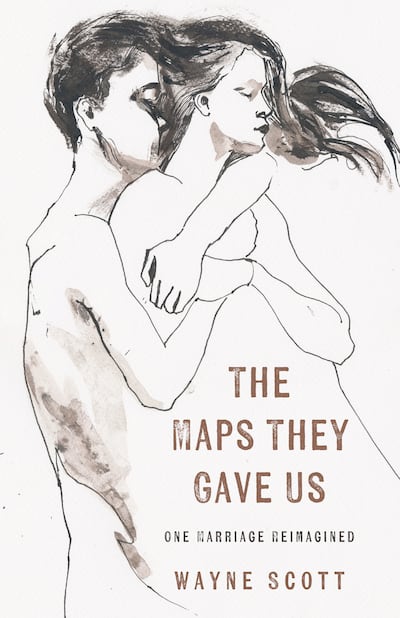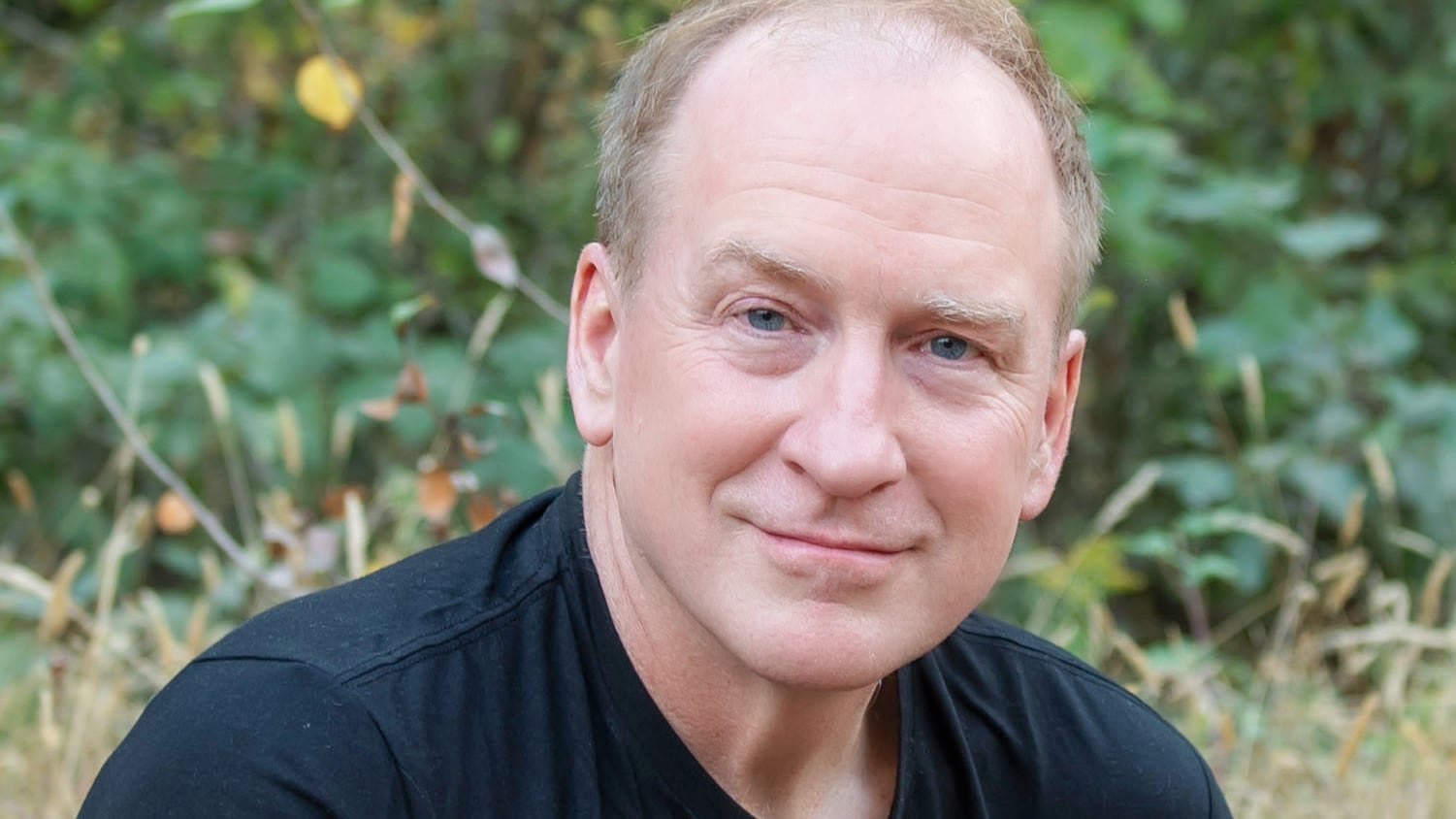Portland psychotherapist and writer Wayne Scott has a story to tell. In 2007, when he and his wife, “Eva” (her pseudonym in the memoir), had been married for 15 years (together for 20), they decided to separate, largely because of differing orientations—Scott being bisexual, his wife heterosexual.

They began seeing a couples counselor and divorce mediator who asked them to find a “common story,” an agreed-upon account of their lives together, a task often assigned to divorcing people before they have more loaded conversations about separating assets or child custody arrangements. In the process, the two found themselves unexpectedly falling in love again, envisioning a new, nonmonogamous marriage that would allow them to flourish as a couple and individually.
Scott’s memoir, The Maps They Gave Us: One Marriage Reimagined (Black Lawrence Press, 300 pages, $27.95), details his and Eva’s relationship from their meeting as undergraduates at the University of Chicago through the crisis and rejuvenation of their marriage. We spoke with Scott on a Saturday afternoon in January as he prepared for a meeting with Husbands Out to Wives at Portland’s Q Center.
WW: How did you decide to write this memoir?
Wayne Scott: The memoir started as individual essays I published in journals. Over time, I saw everything I wrote was about the challenges of heteronormative marriage and the inadequate language we have to talk about it, so I decided to write a book to acknowledge, even celebrate, the imperative for growth, adaptation, and improvisation as part of being in a long-term relationship. Vows tend to promise static and immutable devotion, but I realized that we couldn’t have survived this marital crucible if we hadn’t discovered a deeper devotion.
What is the origin of the title?
The title The Maps They Gave Us comes from an Adrienne Rich poem in the collection The Dream of a Common Language, which she wrote at the beginning of her relationship with her lifelong partner.
Except for a few chapters, this is primarily set in Portland. What are some of the Portland locations that are significant?
I love Portland. I love the land and the nature around us. I don’t think our partnership would have endured if not for Portland’s progressive social attitudes. That’s an important part of our family’s life, and I wanted it to be an important part of the book’s life as well. Costello’s Travel Cafe (my neighborhood spot to read and drink coffee), Broadway Books, Forest Park (running trails), Oaks Bottom Park, Breitenbush. The last chapter is called “The Hike to Mirror Lake.”
What do you hope people learn about nonmonogamy and marriage?
That there are many valid, creative ways to be married; that the marriage/divorce binary shortchanges the possibilities of how we grow together; that divorce, when it does happen, is just another transition, undeserving of stigma or shame.
Many writers are writing about the complexity of marriage and the need to reinvent our maps, but there aren’t many men in the conversation. I hoped to show that changing the shapes of our marriages requires changing the way we show up as men.
What experience do you hope readers have with the book?
I hope my memoir sparks conversations about creating marriages that are satisfying connections but also allow room for individual growth and healing. I hope that readers, when they contemplate their own partnerships, will lean as heavily on imagination as they do convention. I hope people have patience with how hard these conversations about reinvention and growth can be and how long they take. There’s a line in the memoir that came to me while sitting in Costello’s, reading E.M. Forster’s Aspects of the Novel: “Maybe marriage, like a novel, should be an act of imagination.”
SEE IT: Wayne Scott in conversation with Jay Ponteri at Broadway Books, 1714 NE Broadway, 503-284-1726, broadwaybooks.net. 6 pm Thursday, March 13. Free

